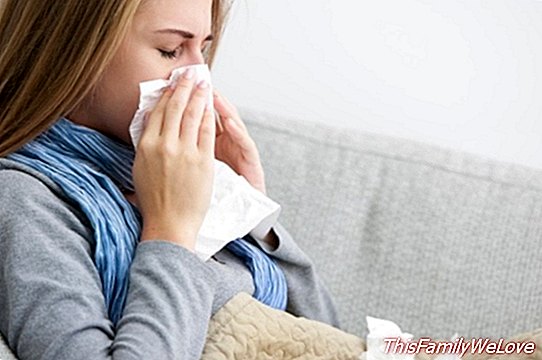The flu, everything we need to know

As every year, the season of the seasonal flu, a viral infection easily transmissible. It is a more common virus during the winter in the case of temperate climates, while in countries located in tropical areas, the flu epidemic It can occur throughout the year.
It affects millions of people annually, between 5 and 10 percent of adults and between 20 and 30 percent of children. Besides, the flu causes between 3 and 5 million cases of severe pathology mainly in people older than 65 years, data that indicate the need to clear certain doubts about this disorder: do I have the flu or is it just a cold? Should I take something for the fever? or do I need to get vaccinated?
What is the flu?
It consists of an infection of the nose, pharynx, bronchi and even reach the lungs, of viral origin (influenza virus), which people can contract once every several years. As usual confuse the symptoms of influenza with the common cold, it should be noted that the latter can affect an individual more than once throughout the year, while the flu is usually contracted once every several years. In addition, the fever is higher in the flu as well as the headache and the degree of decay.
How is the flu spread?
The flu is spread through tiny droplets that an infected person expels when coughing and that inspires another individual. Another fast route of propagation is through the hands of a patient with the virus when they come into physical contact with another person. For this reason, the transmission is very fast between individuals, especially in places where a large number of people are concentrated, such as schools, offices, colleges or residences for the elderly, for example.
However, there are groups of people more vulnerable to infection, such as children under 2 years of age, the elderly and those individuals who for any reason have weakened immune systems or who are already afflicted with other disorders, such as heart disease. , renal, metabolic, pulmonary or hepatic, among others. When you already have the illness of the flu, some tips to feel better, can help you. The most important thing is to know that antibiotics are ineffective against the virus and should only be prescribed by the doctor when the flu is complicated by a bacterial infection.
Vaccination, the main weapon of prevention against influenza
Good hygiene is the key to reducing the spread of influenza. Influenza patients should wash their hands continuously to avoid leaving the virus in objects that then use others or transmit the virus directly when they come into physical contact with other individuals. It is also important to cover your mouth when coughing in order to prevent infected droplets from spreading through the air and other people inhaling them.
In any case, the influenza vaccine is the best tool to reduce the degree of disease caused by the virus, which is why the health authorities recommend it especially for the population groups most at risk. The composition of the vaccine is updated each season according to the indications of the World Health Organization, for its low efficacy to prevent influenza from one year to another.
The flu vaccine and the risk groups
The vaccine is advised to:
- those over 65
- pregnant women
- children between 6 months and 5 years
- people with chronic diseases
- health professionals
Dr. Ismael Said Criado. Internal Medicine Service of La Milagrosa Hospital in Madrid




